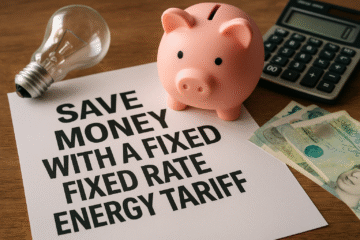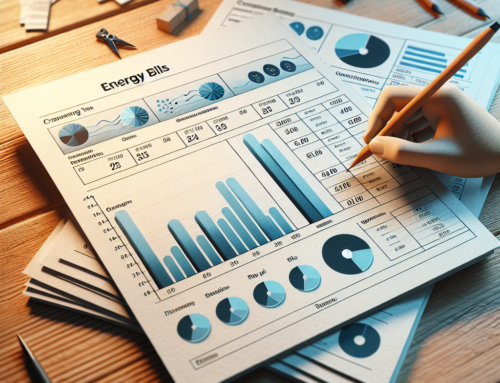Understanding your energy usage is the first step towards making a positive impact on the environment and reducing your energy bills. By taking the time to assess how much energy you are using, you can identify areas where you can make changes to reduce your consumption. Start by looking at your utility bills and identifying patterns in your energy usage. This will help you to pinpoint which appliances or activities are using the most energy in your home. You can also invest in a home energy monitor, which will give you real-time information about your energy usage and help you to identify areas where you can make improvements. By understanding your energy usage, you can make informed decisions about how to reduce your consumption and save money.
Another way to understand your energy usage is to conduct a home energy audit. This involves a thorough assessment of your home's energy use, including an inspection of appliances, insulation, and heating and cooling systems. A professional energy auditor can provide you with a detailed report on your home's energy efficiency and recommend ways to make improvements. By understanding your energy usage, you can take proactive steps to reduce your consumption and make your home more energy-efficient.
Implementing energy-saving habits
Once you have a good understanding of your energy usage, it's time to start implementing energy-saving habits in your daily life. There are many simple changes you can make that will have a big impact on your energy consumption. For example, turning off lights and appliances when they are not in use, using energy-efficient light bulbs, and adjusting your thermostat by just a few degrees can all help to reduce your energy usage. You can also make changes to your daily routines, such as using cold water for laundry and taking shorter showers, to further reduce your energy consumption.
Another way to implement energy-saving habits is to invest in smart technology for your home. Smart thermostats, for example, can learn your heating and cooling preferences and adjust the temperature accordingly, saving you money on your energy bills. Smart plugs and power strips can also help you to manage and reduce the energy consumption of your appliances and electronics. By implementing these energy-saving habits, you can make a positive impact on the environment and save money on your energy bills.
Investing in energy-efficient appliances
Investing in energy-efficient appliances is another important step towards reducing your energy consumption. When shopping for new appliances, look for the Energy Star label, which indicates that the appliance meets strict energy efficiency guidelines set by the Environmental Protection Agency. Energy-efficient appliances use less energy to operate, which can result in significant savings on your energy bills over time. For example, replacing an old refrigerator with a new Energy Star model can save you up to £300 over the lifetime of the appliance.
In addition to purchasing energy-efficient appliances, you can also make changes to how you use your existing appliances to reduce your energy consumption. For example, using the dishwasher and washing machine only when they are full, and air-drying clothes instead of using a dryer can all help to reduce your energy usage. By investing in energy-efficient appliances and making changes to how you use them, you can make a positive impact on the environment and save money on your energy bills.
Conducting regular maintenance checks
Regular maintenance checks are essential for ensuring that your home is running efficiently and using energy wisely. By conducting regular maintenance checks on your heating and cooling systems, insulation, and appliances, you can identify and address any issues that may be causing unnecessary energy consumption. For example, a clogged air filter in your HVAC system can cause it to work harder and use more energy, so replacing the filter regularly can help to improve its efficiency.
In addition to regular maintenance checks on your appliances and systems, it's also important to ensure that your home is properly insulated and sealed. This will help to prevent heat loss in the winter and keep cool air inside during the summer, reducing the amount of energy needed to heat and cool your home. By conducting regular maintenance checks and addressing any issues that arise, you can ensure that your home is running efficiently and using energy wisely.
Exploring renewable energy options
Exploring renewable energy options is another way to reduce your reliance on traditional sources of energy and make a positive impact on the environment. Renewable energy sources such as solar panels, wind turbines, and geothermal systems can provide clean, sustainable power for your home. By investing in renewable energy options, you can reduce your carbon footprint and potentially save money on your energy bills over time.
One of the most popular renewable energy options for homeowners is solar power. Installing solar panels on your roof can generate clean electricity for your home and reduce your reliance on grid power. In some cases, you may even be able to sell excess electricity back to the grid, further reducing your energy costs. Wind turbines and geothermal systems are also viable options for homeowners looking to invest in renewable energy. By exploring these renewable energy options, you can make a positive impact on the environment and reduce your reliance on traditional sources of energy.
Taking advantage of government incentives
Many governments offer incentives for homeowners who invest in renewable energy and make their homes more energy-efficient. These incentives can include tax credits, rebates, and grants that can help offset the cost of installing renewable energy systems or making energy-efficient improvements to your home. By taking advantage of these government incentives, you can reduce the upfront cost of investing in renewable energy and make it more affordable for homeowners.
In addition to government incentives for renewable energy, there are also programs available to help homeowners improve the energy efficiency of their homes. For example, some governments offer low-interest loans for home improvements such as insulation upgrades or HVAC system replacements. By taking advantage of these government incentives, you can make it more affordable to invest in renewable energy and make your home more energy-efficient.
Seeking professional advice and assistance
Seeking professional advice and assistance is essential for homeowners looking to make their homes more energy-efficient. A professional energy auditor can provide you with a detailed assessment of your home's energy usage and recommend ways to make improvements. They can also help you to identify government incentives that may be available to help offset the cost of making energy-efficient improvements to your home.
In addition to working with a professional energy auditor, it's also important to seek assistance from qualified contractors when making improvements to your home. For example, if you are considering installing solar panels or a geothermal system, it's important to work with a reputable installer who has experience with these types of systems. By seeking professional advice and assistance, you can ensure that the improvements you make to your home are done correctly and will have a positive impact on your energy usage.
In conclusion, there are many steps that homeowners can take to reduce their energy usage and make their homes more efficient. By understanding their energy usage, implementing energy-saving habits, investing in energy-efficient appliances, conducting regular maintenance checks, exploring renewable energy options, taking advantage of government incentives, and seeking professional advice and assistance, homeowners can make a positive impact on the environment and save money on their energy bills. Making these changes may require an upfront investment of time and money, but the long-term benefits are well worth it for both homeowners and the planet.





